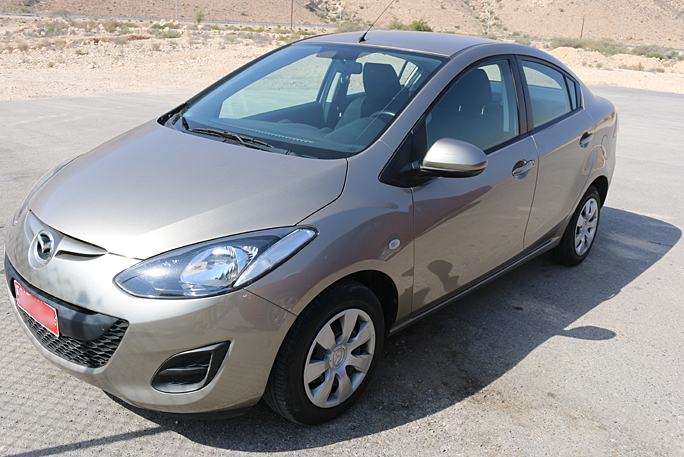C ompanies seem to be doing whatever they can to extract more and more money out of you these days — and they may even be willing to sacrifice your trust in them to increase their revenues…
…but while companies may engage in practices where could be considered borderline fraud and yet may be perfectly legal, there are employees and franchisees who may cross that critical line and commit outright fraud — and this can be true with rental car facilities, as I first reported in this article on November 28, 2012 and again in this article on February 21, 2014.
It is always possible that an employee of the rental car company could commit an honest error in favor of the company — but regardless of whether the act of charging you more was erroneous or blatantly on purpose, you should always protect yourself from having to pay more money out of your pocket than necessary or required.
A poll was posted at The Road Warriorette, where this question was asked: Do you inspect your rental car?
After reading that article, I thought it would be a good idea to impart to you my advice of 13 tips on what you can do to prevent from being scammed by a rental car company whenever you rent a vehicle — many of which are reiterations of advice I have imparted in the aforementioned articles — regardless of your choice of rental car company:
1: Do You Need to Purchase Insurance?
You might already be insured by either your automobile insurance policy or by a benefit of the credit card you use to rent the car. First, check with the company which issued your credit card to ensure that rental car insurance is included as part of your contracted benefits before you decide whether or not to purchase insurance from the credit card company; and find out whether or not that insurance is primary or secondary.
If for some reason a rental car company claims that you are responsible for damage to the car, it is better to have them challenge the credit card company than your insurance company, which could possibly raise your vehicle insurance premiums as a result — even if the damage was not your fault.
Depending on where you rent your car, certain types of insurance might be included with the price of the rental; so check that carefully as well.
2: Ensure That You Are Covered
If you do decide to purchase insurance from the rental car company, read the fine print and exclusions of the policy carefully, as you might not be covered for certain items after all if anything should happen. For example, damage to a tire will most likely not be covered under collision insurance.
3: Check the Policies of the Facility From Which You Rent
Carefully check the policies of the rental car company — such as when returning a car after hours, for example — as different rental car companies have different policies. Sometimes different locations of the same rental car company can have different policies as well.
4: Inspect the Vehicle
Walk around the car and inspect both the interior and exterior thoroughly. This includes bumpers, grilles, tires, seats, floor mats, the carpeting under the floor mats, the glove compartment, lenses for the lights, trunk — everywhere on, in and even under the vehicle.
5: Check the Vehicle for Any Damage — No Matter How Minor
If you see a minor scrape, rub it with your finger or cloth to ensure it is dirt and not a scratch. If the scrape is indeed a scratch, record it either by writing down the location of the scrape on the vehicle, or take a photograph or video of it — or, preferably, do both.
6: Report Any Potential Anomalies for Which You Could Be Charged
Report any anomalies you find to the rental car attendant before you leave the facility, and ensure that the attendant records it in your contract, as well as initials the findings.
7: Get Official Acknowledgement of Your Findings
If the attendant refuses for any reason to officially record and acknowledge the damage — which has never happened to me — either report it to the supervisor of the attendant or patronize another rental car company. Regardless — whatever you do — do not leave the facility with the car, because once you do, you are now responsible for the “repairs.” It will be your word against the word of the representatives of the rental car company when the time for confrontation comes.
8: Avoid Cleaning Fees
If the car is deemed a no-smoking vehicle, ensure that there is no tobacco odor or ashes in the ash tray — you could be charged with a cleaning fee. Look for stains or other potential damage.
9: Thoroughly Test the Equipment of the Vehicle
Before pulling out of the parking space, test the equipment. Ensure that the lights, turn signals, radio, windshield wipers and fluid, and other electronics operate properly. This is for your safety as well as your protection from being a potential victim of fraud.
10: Obey All Traffic Laws
While the vehicle is your responsibility, take care to obey all traffic laws. This may sound like obvious advice; but if you are driving down a highway which electronically records your speed without you knowing about it — and is equipped with hidden cameras which will photograph your car in the midst of it exceeding the speed limit — you could very well be surprised with a fine plus charges and fees upon your return home. The same caution should be exercised anytime you arrive at a traffic light where cameras might be installed as well. Unless you have some irrefutable evidence to the contrary, fighting the fine and contesting the charges and fees could prove little more than futile.
11: Report Damage as Soon as Possible
Try to park in places where the possibility of the car getting “dinged” by a careless fellow motorist can be mitigated or eliminated. If you find damage caused by someone else and you are certain as to who is the perpetrator, record the license plate of the vehicle in question and call the police to file an accident report. Take insurance information from the person or people who caused the damage, if possible.
12: Stand Your Ground and Do Not Waiver
Do not allow yourself to be coerced into being a victim. If you believe you are being scammed by the rental car company, record every detail you can regarding your experience to either contact the corporate office of the rental car company, the police, a consumer advocate organization — or even the media, if necessary. You can also dispute the charges with your credit card company — which leads to the final word of advice…
13: Routinely Check Your Credit Card Statement
Always check your credit card statement for at least a month after the conclusion of the car rental to ensure that no surprise charges have been added.
Summary
Keep in mind that some car rental companies are more stringent than others. I find renting from National Car Rental to be far more of a pleasant experience than Thrifty or Dollar, which I attempt to avoid. Aside from a rental car issue in Cyprus which consumed the better part of a day, I also usually have no issues renting from Avis. A number of inexplicable charges recently appeared on my credit card from Hertz even though I had paid for the rental in full in advance. When I called about them, a customer service representative from Hertz recommended that I dispute the charges, which I subsequently did — and the charges were permanently reversed.
Your car rental experience will be uneventful most of the time; and if you are asked to pay more than you should, it will most likely be due to an honest mistake on the part of the employee of the rental car company. However, all it takes is one time to be scammed — and if that happens to you, the cost in terms of time, effort and money can potentially be enormous. Do yourself a favor and be fully prepared before your rent your next vehicle, as with renting from any rental car company, caveat emptor.
Photograph ©2015 by Brian Cohen.

